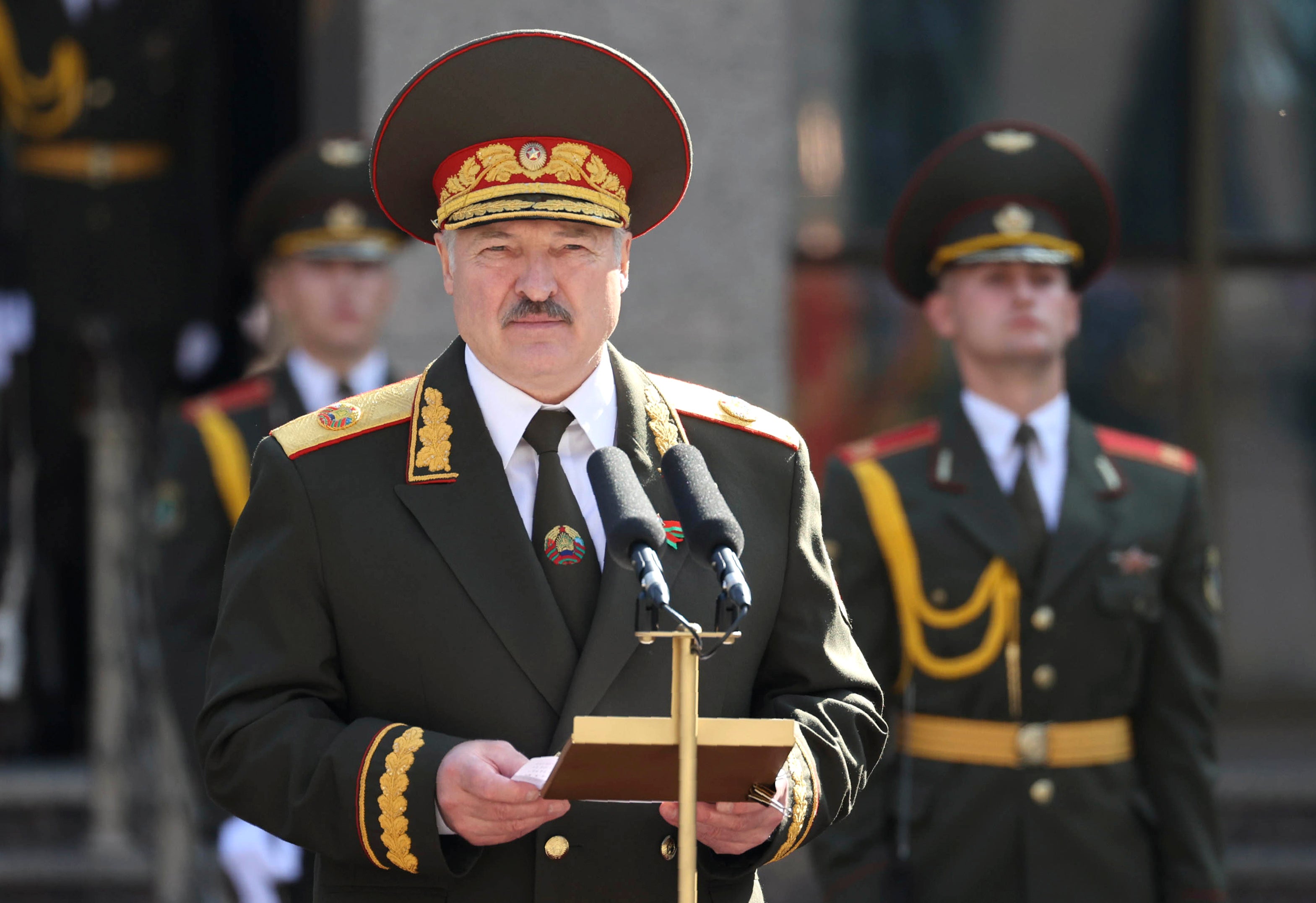Belarus' leader claims he saved opposition challenger's life
Belarus’ authoritarian president, whose re-election has triggered two months of protests, is maintaining that he saved his main opponent’s life by getting her out of the country — a claim rejected by her spokeswoman

Your support helps us to tell the story
From reproductive rights to climate change to Big Tech, The Independent is on the ground when the story is developing. Whether it's investigating the financials of Elon Musk's pro-Trump PAC or producing our latest documentary, 'The A Word', which shines a light on the American women fighting for reproductive rights, we know how important it is to parse out the facts from the messaging.
At such a critical moment in US history, we need reporters on the ground. Your donation allows us to keep sending journalists to speak to both sides of the story.
The Independent is trusted by Americans across the entire political spectrum. And unlike many other quality news outlets, we choose not to lock Americans out of our reporting and analysis with paywalls. We believe quality journalism should be available to everyone, paid for by those who can afford it.
Your support makes all the difference.Belarus' authoritarian president, whose re-election has triggered two months of protests, maintained Friday that he saved his main opponent's life by getting her out of the country — a claim rejected by her spokeswoman.
Alexander Lukashenko asserted that Sviatlana Tsikhanouskaya who ran against him in the Aug. 9 election, left of her own free will for Lithuania a day after the vote. Her supporters say Lukashenko's regime forced Tsikhanouskaya out.
“I gave orders and we drove her to Lithuania, at her request, to join her children there,” Lukashenko said, adding that Belarusian authorities also gave her $15,000 in cash.
Lukashenko, who has ruled the ex-Soviet nation with an iron fist for 26 years, alleged that unidentified members of the opposition had been plotting to kill Tsikhanouskaya to stir up protests.
Tsikhanouskaya's spokeswoman, Anna Krasulina, rejected Lukashenko's claims, saying that she was pressured by the authorities to leave the country.
“Now Lukashenko obviously regrets that he didn't put Tsikhanouskaya in prison, and he's trying to take revenge for her successful activities both inside the country and in the international arena,” she said.
Tsikhanouskaya, a 37-year-old former English teacher without any political experience, joined the race after authorities jailed her husband who was hoping to run for president. She mounted an energetic campaign, tapping on public frustration with Lukashenko's authoritarian rule, his cavalier response to the coronavirus pandemic and the deteriorating economy.
Lukashenko's landslide re-election was widely seen as rigged, and triggered massive protests. A violent crackdown on peaceful demonstrators in the first days after the vote, in which thousands were arrested and hundreds were beaten by police, provoked international outrage and helped swell protesters' ranks.
The European Union and the United States said the election was neither free nor fair. They have slapped scores of Belarusian officials with sanctions for their role in the alleged vote-rigging and the crackdown on protests, but didn't target Lukashenko himself.
The government has sought to stifle protests by detaining hundreds of demonstrators, prosecuting some top activists and forcing others to leave the country. However, massive demonstrations have continued, reaching their peak numbers on Sundays when up to 100,000 flood the streets of the Belarusian capital, Minsk.